When I first came to wdr I was miserable. At my worst. Then I met with Stevie and her simple words "the devil only wins if u don't fight ", she changed my whole outlook. She is an easy person to talk to with a beautiful spirit and knows how to do her job well .
About White Deer Run – Allenwood
When you’re not spending time admiring the mountains you can expect to receive detoxification services before enjoying a residential treatment program that caters to your unique substance abuse recovery goals. Your care is handled by multidisciplinary teams of professionals like physician assistants, medical doctors, nurse practitioners, therapists and counselors.
If needed you can also request gender specific treatment. Some people cope better in a healing environment with the same gender, and at Allenwood you can benefit from this. During gender specific programming you can expect to undergo experiential therapies, family therapy and group and individual therapy, alongside thorough discharge planning.
Many who have spent time at this center agree that their specific needs and strengths were addressed. This gave them the best chance at long term sobriety, and you can look forward to the same treatment.
With this center’s support you have the tools needed to build an addiction free foundation that promotes long term recovery, so speak with your insurance to determine if you have coverage. Most major insurers are accepted, including United Healthcare, Aetna, Blue Cross Blue Shield and Cigna. However, if you do not have coverage you might be able to arrange a payment plan, so speak with the rehab center to determine your options.
Facility Overview
Latest Reviews
Rehab Score
Gallery
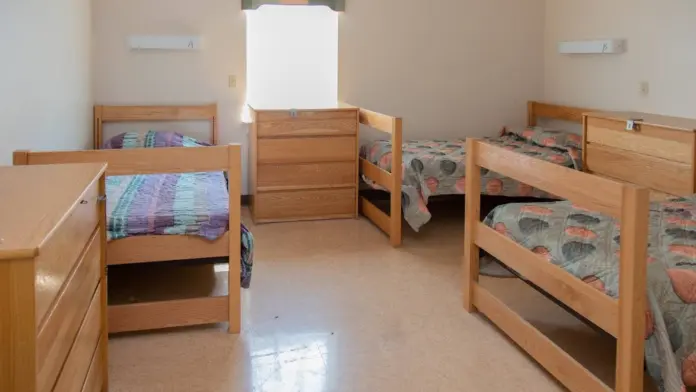
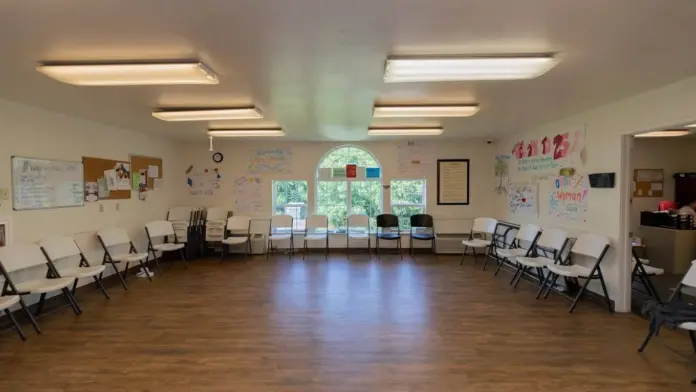
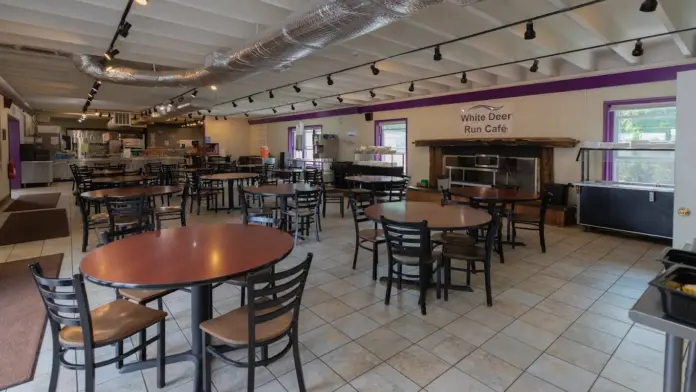
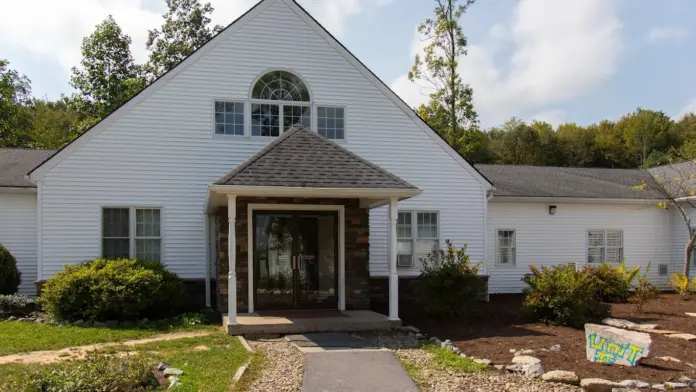
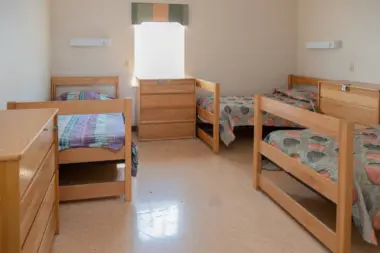
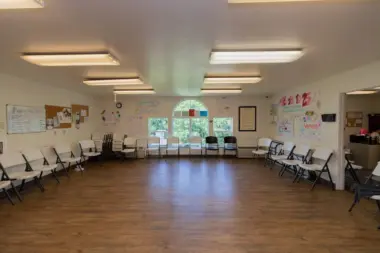
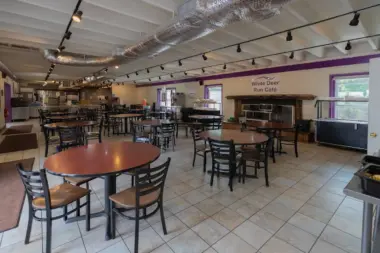
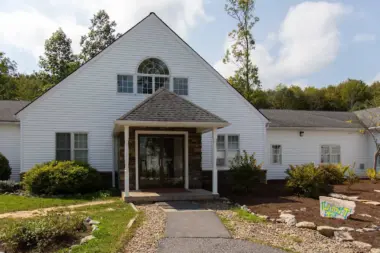
Accepted Insurance
Other Forms of Payment
Medicaid is a state based program that helps lower-income individuals and families pay for healthcare. Medicaid covers addiction treatment so those enrolled can use their coverage to pay for rehab. When a program accepts Medicaid the client often pays very little or nothing out of their own pocket.
Private insurance refers to any kind of healthcare coverage that isn't from the state or federal government. This includes individual and family plans offered by an employer or purchased from the Insurance Marketplace. Every plan will have different requirements and out of pocket costs so be sure to get the full details before you start treatment.
Self-pay involves paying for treatment out of your own pocket. You can use savings or credit, get a personal loan, or receive help from family and friends to fund your treatment. If you don't have insurance or your insurance plan doesn't cover a specific program, self-pay can help ensure you still get the care you need.
Financial aid can take many forms. Centers may have grants or scholarships available to clients who meet eligibility requirements. Programs that receive SAMHSA grants may have financial aid available for those who need treatment as well. Grants and scholarships can help you pai for treatment without having to repay.
Military members, veterans, and eligible dependents have access to specific insurance programs that help them get the care they need. TRICARE and VA insurance can help you access low cost or no cost addiction and mental health treatment. Programs that accept military insurance often have targeted treatment focused on the unique challenges military members, veterans, and their families face.
Addiction Treatments
Levels of Care
Outpatient rehabs specialize in providing comprehensive care for clients who choose to remain in their homes and communities during treatment. Their services may include transitional support for clients stepping down from intensive inpatient programming. Ambulatory medical detox may be provided for clients at low risk for withdrawal complications. Many programs include evening, night, and weekend services to accommodate clients who are working professionals or caregivers. Addiction counseling and life skills training are common treatment modalities.
Residential treatment programs are those that offer housing and meals in addition to substance abuse treatment. Rehab facilities that offer residential treatment allow patients to focus solely on recovery, in an environment totally separate from their lives. Some rehab centers specialize in short-term residential treatment (a few days to a week or two), while others solely provide treatment on a long-term basis (several weeks to months). Some offer both, and tailor treatment to the patient's individual requirements.
12-step programs are addiction recovery models based on Alcoholics Anonymous (AA). A number of substance abuse programs (including some drug and alcohol rehab centers) use the 12 steps as a basis for treatment. Beginning steps involve admitting powerlessness over the addiction and creating a spiritual basis for recovery. Middle steps including making direct amends to those who've been hurt by the addiction, and the final step is to assist others in addiction recovery in the same way. 12-Step offshoots including Narcotics Anonymous (NA), Cocaine Anonymous (CA), Dual Recovery Anonymous (DRA), Sex and Love Addicts Anonymous (SLAA) and Gamblers Anonymous (GA).
The detoxification program at White Deer Run of Allenwood is designed to be a safe place to withdraw from substances. Detox treatment program consists of both a medical component and a clinical component, known as DOVE., or Detoxification, Observation, Verification, and Evaluation. Detox at their addiction treatment center is a medically monitored program that is intended to help the men and women of Allenwood when they are at their most vulnerable.
Treatments
Fighting a two-front war against both substance use and co-occurring mental health issues can be exhausting, but White Deer Run of Allenwood provides a specialized track uniquely designed to address the issues these individuals face. Individuals in the co-occurring disorders track will receive individual and group therapy designed to build skills and increase knowledge of their co-occurring disorders.
Substance rehabs focus on helping individuals recover from substance abuse, including alcohol and drug addiction (both illegal and prescription drugs). They often include the opportunity to engage in both individual as well as group therapy.
Programs
Adult rehab programs include therapies tailored to each client's specific needs, goals, and recovery progress. They are tailored to the specific challenges adult clients may face, including family and work pressures and commitments. From inpatient and residential treatment to various levels of outpatient services, there are many options available. Some facilities also help adults work through co-occurring conditions, like anxiety, that can accompany addiction.
Young adulthood can be an exciting, yet difficult, time of transition. Individuals in their late teens to mid-20s face unique stressors related to school, jobs, families, and social circles, which can lead to a rise in substance use. Rehab centers with dedicated young adult programs will include activities and amenities that cater to this age group, with an emphasis on specialized counseling, peer socialization, and ongoing aftercare.
Clinical Services
Cognitive Behavioral Therapy (CBT) is a therapy modality that focuses on the relationship between one's thoughts, feelings, and behaviors. It is used to establish and allow for healthy responses to thoughts and feelings (instead of unhealthy responses, like using drugs or alcohol). CBT has been proven effective for recovering addicts of all kinds, and is used to strengthen a patient's own self-awareness and ability to self-regulate. CBT allows individuals to monitor their own emotional state, become more adept at communicating with others, and manage stress without needing to engage in substance abuse.
Dialectical Behavior Therapy (DBT) is a modified form of Cognitive Behavioral Therapy (CBT), a treatment designed to help people understand and ultimately affect the relationship between their thoughts, feelings, and behaviors. DBT is often used for individuals who struggle with self-harm behaviors, such as self-mutilation (cutting) and suicidal thoughts, urges, or attempts. It has been proven clinically effective for those who struggle with out-of-control emotions and mental health illnesses like Borderline Personality Disorder.
Groups are a fundamental component of treatment at White Deer Run of Allenwood. Six structured activity groups are offered each day, seven days per week, while small groups and mental health groups are offered four times per week. Groups provide a chance for individuals to support and be supported by others while learning from each other’s experiences. Structured activity groups are led by technicians, case managers, and counselors, and the small groups and mental health groups are led by a counselor.
Individual therapy provides an opportunity for participants in the residential rehabilitation program to receive support and process issues that have emerged during the course of treatment. At their rehab center, individual therapy is provided at least once per week depending on each individual’s needs.
Motivational Interviewing (MI) is a clinical approach to helping people with substance abuse issues and other conditions shift behavior in positive ways. It is more goal-oriented than traditional psychotherapy, as MI counselors directly attempt to get clients to consider making behavioral change (rather than wait for them to come to conclusions themselves). Its primary purpose is to resolve ambivalence and help clients become able to make healthy choices freely.
Family therapy: Families can often be a strong source of first-line support for women who are struggling with substance use disorders and co-occurring mental health disorders. As a result, counselors at our rehab center provide weekly family therapy services for participants in our program.
Life skills trainings involve all the skills a person must have in order to function successfully in the world. These include time management, career guidance, money management, and effective communication. Truly successful addiction recovery is based on the ability to not only live substance-free, but to thrive. Life skills teaches the practical necessities of functioning in society, which sets clients up for success in life, and therefore sobriety.
Recreational therapy (aka therapeutic recreation) uses creative and fun activities to help with addiction recovery. Recreational therapists lead patients in entertaining and engaging activities like sports or games; art (drawing, painting, sculpture); drama, music, and dance; and/or community outings (field trips) to improve patients' physical, social, and emotional well-being.
Amenities
-
Yoga Studio
-
Residential Setting
-
Private Rooms
-
Hiking
Staff & Accreditations
Staff
Jeffrey Thomas, MHS, LPC, CAADC
Chief Executive Officer
Thomas J. Callahan, MA, LPC, CAADC, CCS
Regional Vice President, Executive Director
Kieran Pelletier, RN, BC
Chief Operating Officer
Mary Frey
Director of Admissions
Barclay Wilson, DO
Medical Director
Accreditations

The Commission on Accreditation of Rehabilitation Facilities (CARF) is a non-profit organization that specifically accredits rehab organizations. Founded in 1966, CARF's, mission is to help service providers like rehab facilities maintain high standards of care.
CARF Accreditation: Yes
Accreditation Number: 240746

The Substance Abuse and Mental Health Services Administration (SAMHSA) is a branch of the U.S. Department of Health and Human Services. Established in 1992 by congress, SAMHSA's mission is to reduce the impact of substance abuse and mental illness on American's communities.
SAMHSA Listed: Yes

State Licenses are permits issued by government agencies that allow rehab organizations to conduct business legally within a certain geographical area. Typically, the kind of program a rehab facility offers, along with its physical location, determines which licenses are required to operate legally.
State License: Pennsylvania
Contact Information
360 White Deer Run Road
Allenwood, PA 17810




